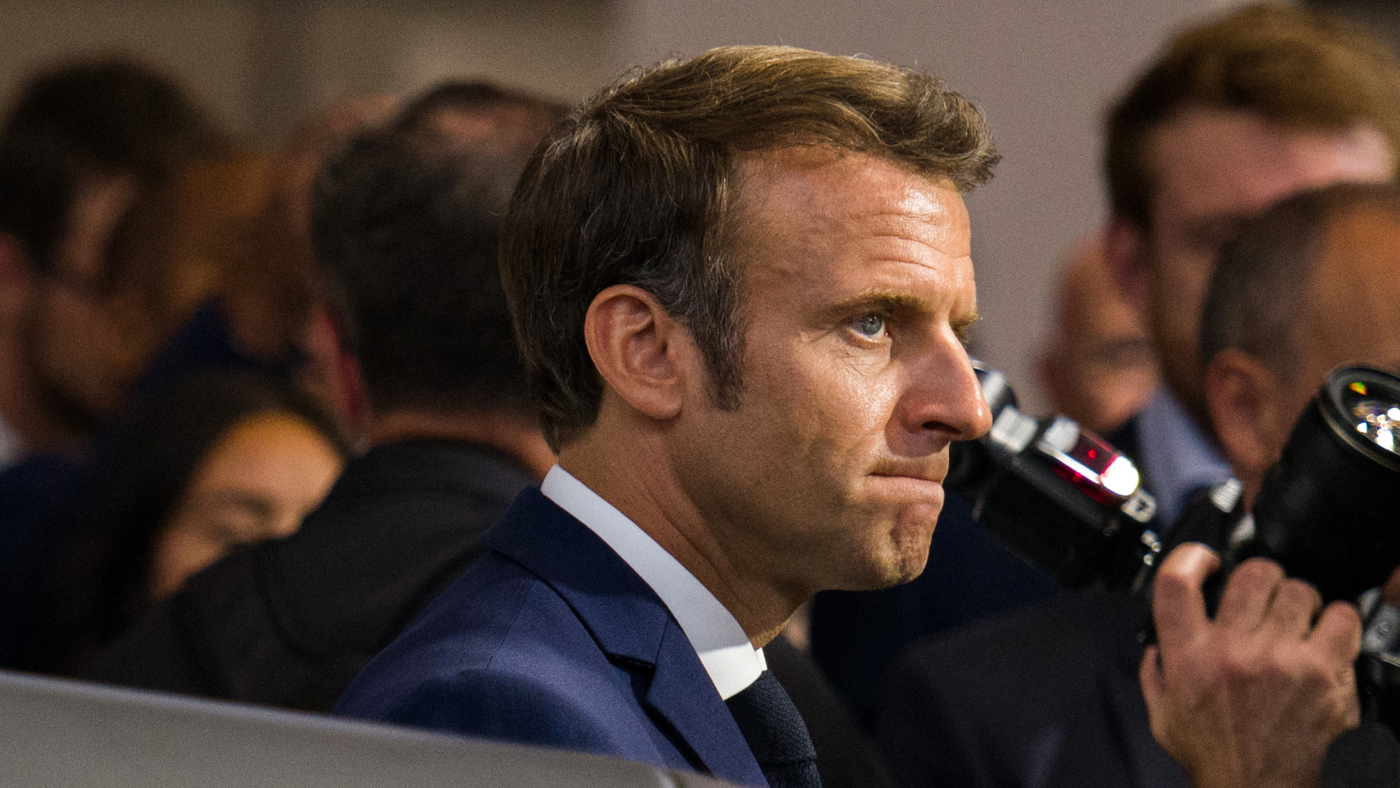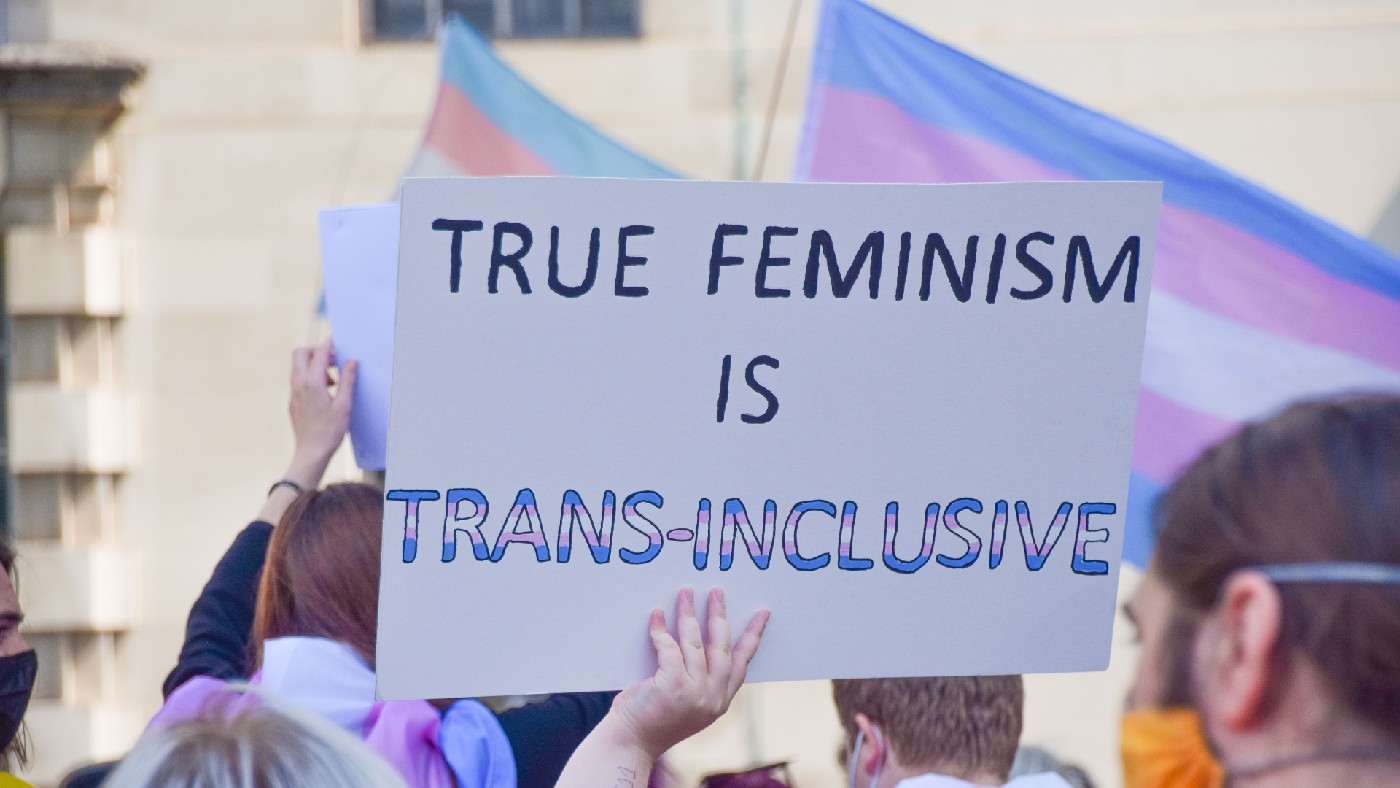Miss Transgender UK: is the beauty pageant exploitative or empowering?
Critics argue the contest encourages trans woman to conform to patriarchal ideals of femininity

A free daily email with the biggest news stories of the day – and the best features from TheWeek.com
You are now subscribed
Your newsletter sign-up was successful
The winner of Britain's transgender beauty pageant has been crowned, but the annual event continues to divide the trans community.
Jai Dara Latto, a 22-year-old make-up artist and trans activist from Scotland, has been named Miss Transgender United 2015 and described her win as a "life changing experience".
The pageant held heats across the country, with contestants taking part in rounds including a question-and-answer session, a talent showcase and a formal-wear catwalk.
The Week
Escape your echo chamber. Get the facts behind the news, plus analysis from multiple perspectives.

Sign up for The Week's Free Newsletters
From our morning news briefing to a weekly Good News Newsletter, get the best of The Week delivered directly to your inbox.
From our morning news briefing to a weekly Good News Newsletter, get the best of The Week delivered directly to your inbox.
Organisers said their objectives were to recruit role models for the trans community, raise money for LGBT charities and provide a much-needed platform for trans issues.
"What I really love about tonight is not just about raising the awareness, but it's actually celebrating our community," contestant Natasha Scott told The Independent.
Although attitudes towards transgender people are slowly changing, the trans community still faces widespread discrimination, high unemployment, disproportionate levels of violence and higher than average suicide rates.
"Many would argue that anything that gives [trans] stories greater prominence has to be useful," says The Guardian's Jane Fae.
A free daily email with the biggest news stories of the day – and the best features from TheWeek.com
But the event has raised serious concerns in the trans community. Fae argues that the pageant is inherently sexist and encourages women to compete by conforming to patriarchal ideals of femininity and attractiveness.
Critics also argued that the prize – £5,000 in cash and a voucher for full gender reassignment surgery – was unethical as healthcare should be a fundamental right, not a prize.
People wishing to go through with gender reassignment surgery are often forced to wait years before receiving treatment on the NHS and a support group for transgender people recently warned that delays were leading patients to self-harm and suicide.
"We believe that access to hormones, surgeries and other transition-related treatments are basic, necessary and life-saving," writes Jess Bradley from group Action For Trans Health.
"They are not prizes akin to a cruise or an open-top car. Making them prizes just makes our basic healthcare needs seem like luxuries."
-
 ‘States that set ambitious climate targets are already feeling the tension’
‘States that set ambitious climate targets are already feeling the tension’Instant Opinion Opinion, comment and editorials of the day
-
 Mixing up mixology: The year ahead in cocktail and bar trends
Mixing up mixology: The year ahead in cocktail and bar trendsthe week recommends It’s hojicha vs. matcha, plus a whole lot more
-
 Labor secretary’s husband barred amid assault probe
Labor secretary’s husband barred amid assault probeSpeed Read Shawn DeRemer, the husband of Labor Secretary Lori Chavez-DeRemer, has been accused of sexual assault
-
 ‘Irony’ as Zoom calls staff back to office
‘Irony’ as Zoom calls staff back to officefeature And other stories from the stranger side of life
-
 The Week Unwrapped: Trans sport, fragrant friends and lost data
The Week Unwrapped: Trans sport, fragrant friends and lost datapodcast Can women’s sport be both fair and inclusive? Do we choose friends based on how they smell? And is Big Data putting us at risk of big losses?
-
 ‘France looks more ungovernable than ever’
‘France looks more ungovernable than ever’Instant Opinion Your digest of analysis from the British and international press
-
 The Week Unwrapped: SIDS, Tasers and Alabaman rights
The Week Unwrapped: SIDS, Tasers and Alabaman rightspodcast Are we closer to understanding sudden infant death syndrome? Has a Trump-appointed judge given hope to trans Americans? And do too many British police have Tasers?
-
 ‘Discussion around trans identity is becoming J.K. Rowling’s new brand’
‘Discussion around trans identity is becoming J.K. Rowling’s new brand’Instant Opinion Your digest of analysis from the British and international press
-
 The Week Unwrapped: Religious tolerance, trans treatment and police misogyny
The Week Unwrapped: Religious tolerance, trans treatment and police misogynypodcast Is the Arab world re-embracing its Jews? Are the rights of LGBTQ+ people under threat? And do the police have a misogyny problem?
-
 ‘Azeem Rafiq’s intervention is a golden opportunity to make cricket more inclusive’
‘Azeem Rafiq’s intervention is a golden opportunity to make cricket more inclusive’Instant Opinion Your digest of analysis from the British and international press
-
 The trans debate: a fiercely-fought battleground in the nation’s culture wars
The trans debate: a fiercely-fought battleground in the nation’s culture warsIn Depth How rights for transgender people has become a major issue in the UK